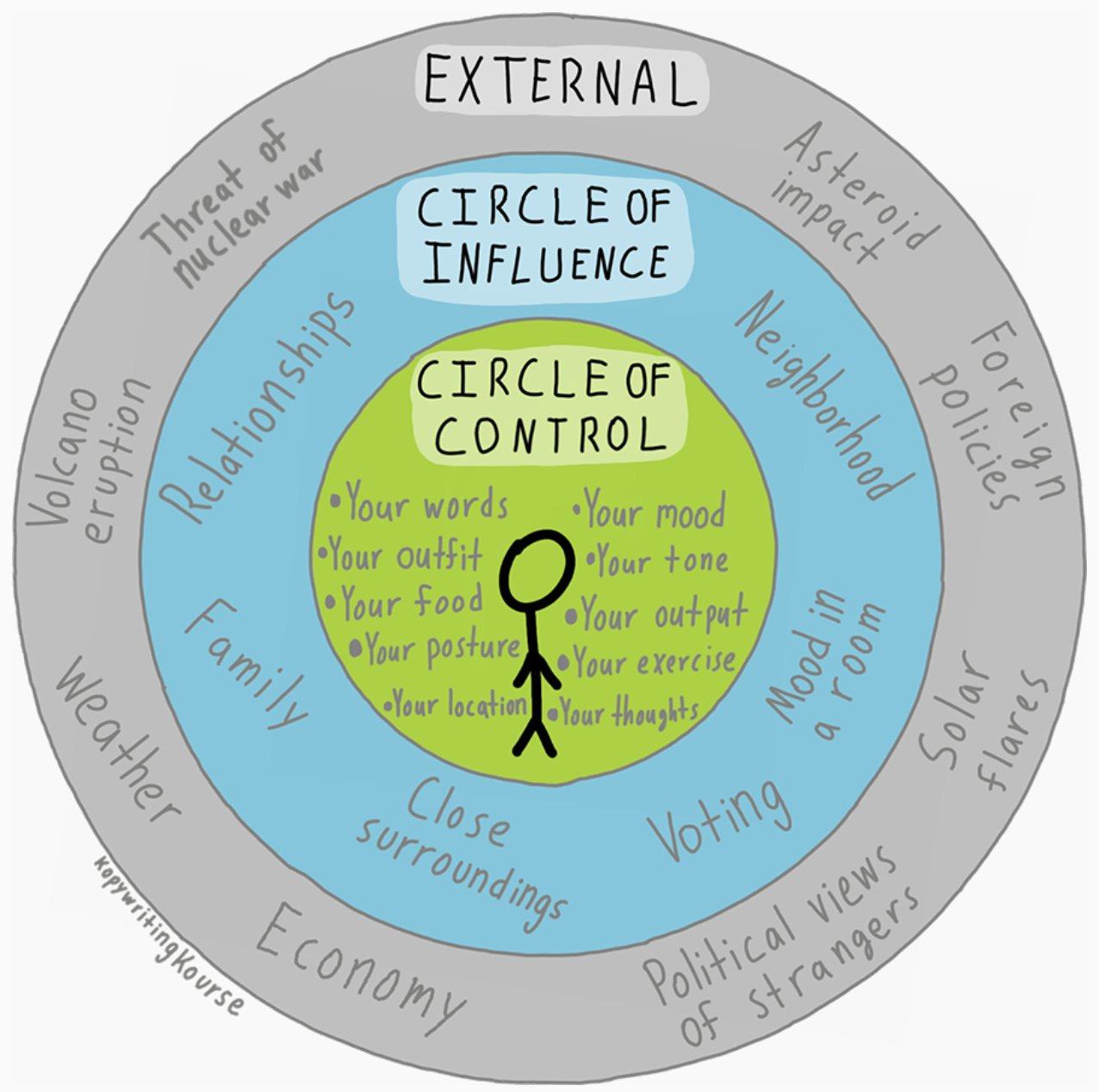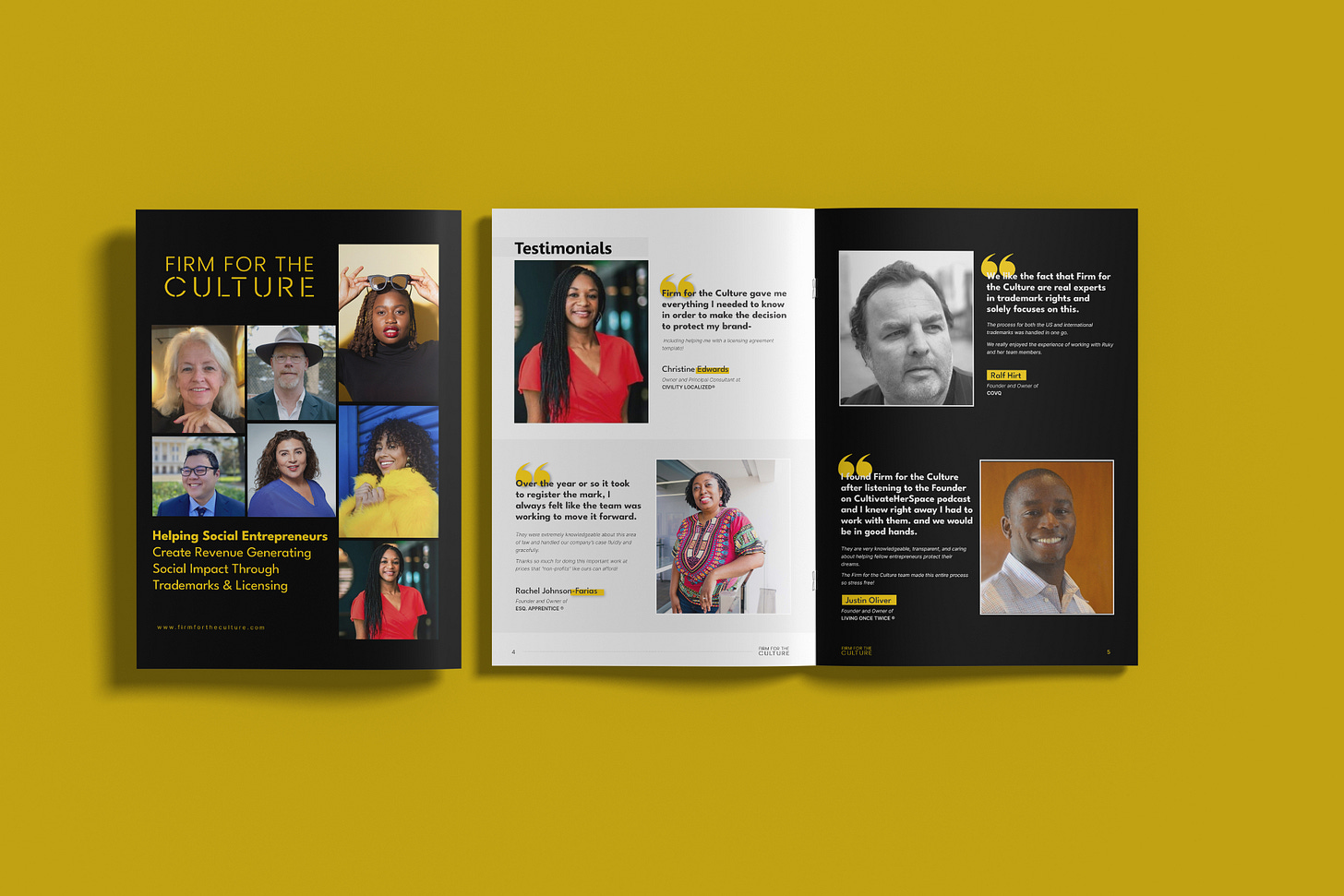Fear, you have no control here.
Embracing the Unknown: A Founder’s Guide to Letting Go and Growing Forward | I Am What an Intellectual Property Attorney Looks Like.
The last few weeks in the United States have been quite the doozy.
If you’re anything like me, you’ve probably been practicing a lot of self-care by limiting the time you spend listening, reading, or watching information related to the results of the 2024 presidential elections.
No matter which side you’re on, I think we can all agree that the election results were surprising, especially given the intentions many of us carried into the voting booth.
These recent electoral events have prompted me to reflect on the difference between being intentional—shaping what we can within our control to align with our values and goals—and being controlling, where we try to force outcomes regardless of the circumstances.
As we approach a new year filled with unpredictability, it’s crucial to explore how we can embrace intentionality while letting go of control.
So, as I share these insights, my hope is that this Founder’s Letter will inspire you to rethink your approach to uncertainty and find peace in embracing the unknown.
Loving This Post?
Show us some love by adding a “❤️” or commenting below; this will make our hearts sing.
But First, Church Announcements
In case you missed it…we got you.
Our session on trademarks, patents, and copyrights last week was dynamic and truly amazing.
If you missed it, don’t worry—you can still grab the workshop notes here.
These notes will only be available for the next week, so make sure you get them while you can!
Are you a founder or thought leader with questions about using intellectual property (IP) to protect and elevate your brand?
This is designed just for you!
In today’s competitive market, safeguarding your brand’s unique identity through IP is essential for growth and sustainability.
Grab a copy of our workshop notes to learn how trademarks, patents, and copyrights can secure your brand’s future and provide a strategic advantage.
👉 Grab it here: Workshop Notes Here
My Journey with Intentionality vs. Control
Over the past few years, I’ve been navigating the balance between being intentional and being controlling.
For a long time, I struggled with conflating the two. I was so focused on trying to control every aspect of my business that I often found myself paralyzed by fear.
This fear of coming off as too controlling held me back from being intentional about my decisions and actions. As a result, I lacked direction and clarity, especially around the vision and mission of my business, Firm for the Culture.
But as I’ve come to understand the difference, I’ve realized that intentionality isn’t about micromanaging or obsessing over every detail.
Instead, it’s about aligning my actions with my goals while trusting the process, even if I don’t have complete control over the outcome.
This shift has made a significant impact on my journey as an entrepreneur and has helped me regain clarity in scaling my business.
1. Focus on Influence, Not Control
Being intentional is about aligning your actions with your values and focusing on what’s within your sphere of influence. It’s about making purposeful decisions and taking deliberate actions to move toward your desired outcomes.
You have control over your own actions, mindset, and the energy you bring into your business, but you can’t control external variables like clients’ responses or market fluctuations.
In the past, I used to attend networking events feeling anxious because I “needed” to leave with at least five to seven leads.
But once I shifted to simply being intentional about how I showed up—being genuinely curious, interested, and open to connections—I found that the possibilities often exceeded my expectations.
Yes, I still had a clear goal to generate leads, but by focusing on showing up authentically, I’ve made connections that have led to unexpected growth opportunities for Firm for the Culture.
As a social impact entrepreneur, focus on what you can influence.
Instead of trying to control the outcome of every pitch, client meeting, or partnership, focus on how you show up and the value you bring to the table.
This approach will not only reduce stress but also open up doors for new opportunities that you may not have anticipated.
Intentionality is about embracing growth, even when it means stepping into the unknown.
It requires trusting that you can achieve your vision, not by micromanaging every detail, but by focusing on your long-term goals. Growth happens when you create space for others to contribute and when you trust your team to take ownership of their roles.
Recently, I hired a few new team members, and while it’s nerve-wracking to delegate and release control, I’ve become more intentional about stepping into my role as a leader.
I’ve invested in leadership coaching to help me lead in a way that aligns with my values of inclusivity and collaboration.
By letting go and empowering my team, I’ve created a more collaborative environment that allows us to innovate and grow.
If you’re in the process of scaling your social impact business, focus on building a strong, capable team that can help you execute your vision.
Delegate tasks that don’t require your direct input, and invest in developing your leadership skills. By letting go of control, you create a culture of trust and collaboration that fuels growth.
Intentionality leaves room for grace because it acknowledges that not everything will go as planned. When you’re intentional, you focus on progress rather than perfection.
This mindset allows you to learn from mistakes and pivot when needed, rather than getting stuck in self-blame or fear of failure.
When crafting legal arguments or strategies, my intention is to win. But I also recognize that two reasonable parties—myself and the USPTO—may not always see eye to eye.
I give myself time to review my work, identify any gaps, and consider the perspectives of others. By allowing space for reflection, I’ve been able to craft stronger arguments that ultimately benefit my clients.
For founders working on protecting their intellectual property, understand that not every strategy or negotiation will go as planned. Give yourself grace when things don’t work out perfectly.
Instead of fixating on mistakes, focus on how you can learn and adjust your approach. This mindset will help you build resilience and adapt more effectively.
As we look ahead to a new year—and a new chapter—it’s a good time to release the idea that we can control every outcome.
Life, business, and growth are full of unexpected twists, and while we may not be able to dictate every result, we can choose to be intentional about how we respond.
The journey of embracing intentionality over control is ongoing. It’s about focusing on influence, letting go to allow growth, and showing ourselves grace when things don’t go perfectly.
For me, this shift has been transformative, helping me lead Firm for the Culture with clarity and purpose, even in the face of uncertainty.
As you navigate your own path, remember: true strength lies in trusting the process and showing up with intention, no matter the circumstances. Here’s to a future where we lean into what we can influence, let go of the rest, and allow space for growth, resilience, and meaningful impact. Let’s walk this journey together.
What’s one area in your life or business where you’re learning to let go of control and trust the process?
Share your experience—I’d love to hear your thoughts!
If you need further guidance, reach out to me and my team at Firm for the Culture.
We’re here to help you navigate the copyright, trademark, and thought leadership journey.
Don't forget to follow us on all platforms for more insights on intellectual property and thought leadership.
And #ThatsAWrap
The Doors of the Church Firm Are Open
Thanks for reading.
See you next time.
#ForTheCulture








I need to connect with a patent attorney to discuss next steps with my intellectual property. Please help?!